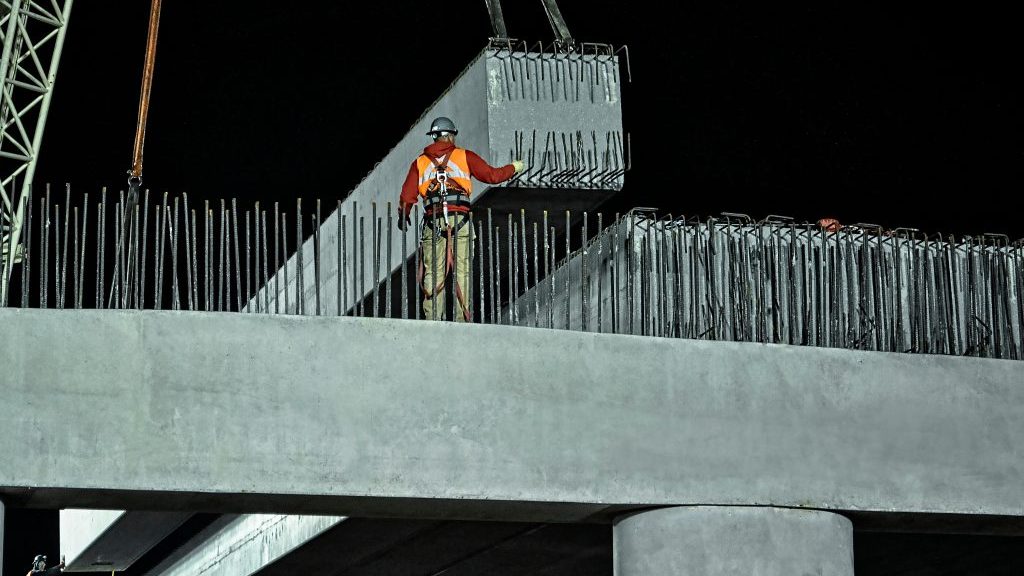This year and 2026 are expected to be peak construction years in Ontario — but not all will be rosy. They are “pinch point” years when contractors could face pressing labour needs.
That’s the message from Katherine Jacobs, director of research for the Ontario Construction Secretariat (OCS), which released its 2020 contractor outlook survey at its annual conference held recently at the Toronto Congress Centre. Jacobs said in the 20 years she has been at the OCS, 2020 is one of the first years where most construction sectors are “going strong.” There are currently $135 billion in projects underway or expected to start in the next three to five years, with transportation leading at $60 billion, followed by utilities, government and healthcare at $15 billion each.
Additional work might be announced by the government, adding pressure on employers already in a tight labour market. “Every region has a lot of activity going on so…there will be competition for workers…”
As regional peak periods vary across the province, workers can move to where the work is, but Jacobs said it is increasingly difficult to get workers into Toronto because of the high housing costs.
She said about 20 per cent of the construction labour force will retire in the next decade, adding strain on employers. “We’re also competing with other industries (for labour) because every industry is in the same situation.”
The GTA is among the “strongest regions,” with work on many commercial and residential towers, transit, healthcare and OPG’s (Ontario Power Generation) Darlington Nuclear Generating Station east of Toronto, Jacobs told delegates. “We are projecting very tight demand for labour over the next year in all of Toronto for many trades.”
Strong major civil engineering work such as transit, hospitals and commercial projects in Toronto are expected to peak this year, and then hit “a modest softening” before reaching another peak in 2026, she said.
The OCS annual survey polls 500 union and non-union contractors in the ICI and highrise residential sectors. 39 per cent of the contractors indicated they anticipated more work in 2020, and only 12 per cent expected to do less. “This is a stronger forecast than last year.”
The OCS conference’s keynote speaker was David Frum, an influential U.S. political analyst and senior editor at The Atlantic. Frum spoke of the need for new global trade policies and referenced China as a case in point, noting that when SARS hit North America in 2003, China was a small global trading power. Its global trade might today, however, is borne out by the impact of its plant and factory shutdowns as a result of the coronavirus.
Frum told the luncheon audience that even before COVID-19, international shipments were decreasing, indicating the potential for recession in many countries.
More than ever, country deficits are financed by selling bonds back to federal reserves to create money, rather than selling bonds to investors, he said, noting that interest rates remain low — the U.S. 10-year bond rate is below one per cent for the first time in history.
“Cheap money is fun while it lasts but it has a number of consequences that are ominous for the future,” including the instability of the Canadian dollar, Frum told the luncheon.
He said low-interest lending triggers the rise of “exotics” — such as real estate investments. “That means the biggest sources of savings in the economy (previously in “super-safe and super-liquid” investments) are now committed to things much less safe and much less liquid.”
He said for every important challenge in the world since World War II, the United States has played a key leadership role “or things didn’t happen.” The concern in recent years is that the U.S. has not led the world, “or chosen to lead in malign and hostile ways.” He alluded to the U.S. federal government’s stance on climate change as to why major climate issues have gone unaddressed.











Recent Comments
comments for this post are closed